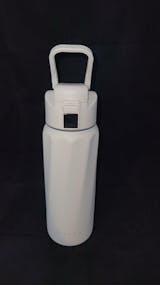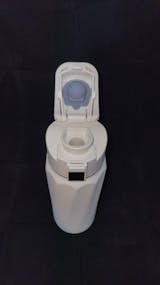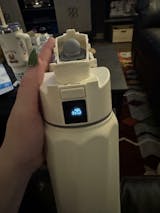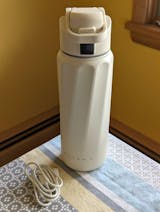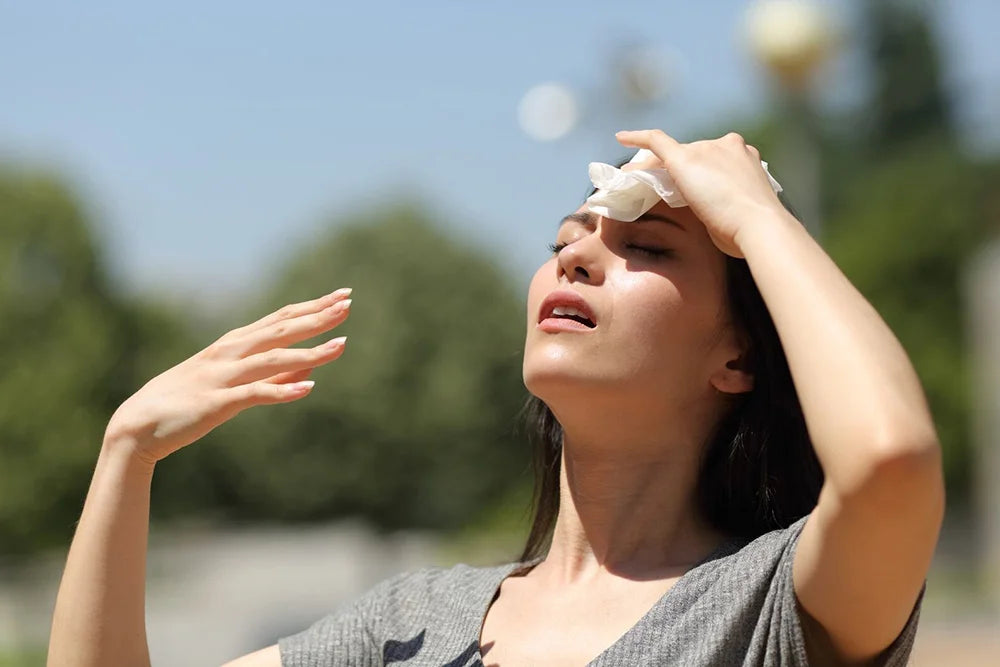
What Happens to Your Body When You’re 1% Dehydrated?
When we hear the word “dehydration,” we often picture extreme thirst, dry skin, or even a trip to the hospital. But did you know that your body can start feeling the effects with just a 1% drop in hydration? You won’t be collapsing from thirst, but your body and brain will already be working harder than they should.
Let’s explore what happens when you lose as little as 1% of your body’s water—and why staying ahead of dehydration is critical for your well-being.
Understanding dehydration: how much is 1%?

Your body is mostly water—around 50-70%, depending on age, sex, and body composition. A 1% drop in hydration might sound tiny, but for a 150-pound person, that’s roughly 0.68 liters (or nearly 3 cups) of water loss. You can lose that much through:
- Sweating during mild exercise.
- Sitting in a hot environment.
- Breathing during air travel.
- Skipping your regular water intake.
- Consuming caffeine or alcohol, which increases fluid loss.
And because water plays a role in virtually every bodily function, even this slight drop has noticeable consequences.
Physical effects of 1% dehydration
When your body loses 1% of its water, it immediately impacts your physical performance and energy levels.
- Your heart works harder, and your heart rate increases to compensate for lower blood volume.
- You may feel fatigue, dry mouth, and mild lightheadedness even if you haven’t exercised much.
- Your core body temperature may rise faster than normal, making you feel uncomfortable in warm environments.
- Circulation slows slightly, which affects how efficiently oxygen and nutrients reach your muscles.
Athletes are well aware of this—a 1–2% water loss can lead to noticeable drops in endurance and strength.
Cognitive impact of just 1% water loss

Dehydration doesn’t just affect your muscles—it impacts your brain, too. Research shows that even mild dehydration can result in:
- Difficulty concentrating or paying attention.
- Brain fog and mental fatigue.
- Mood swings, irritability, and anxiety.
- Poor short-term memory and slower reaction time.
One study found that people who were just 1% dehydrated performed worse on tasks requiring concentration and memory compared to fully hydrated individuals. For office workers, students, and drivers, these effects can lead to costly mistakes.
Health risks if 1% dehydration becomes chronic
Occasional dehydration happens to everyone. But if you consistently allow your body to run at even 1% below ideal hydration, it can put strain on your health over time.
- Kidney strain: Kidneys filter waste more efficiently when there’s enough fluid. Chronic dehydration stresses them.
- Increased headaches: Dehydration is a common trigger for tension headaches and migraines.
- Digestive issues: Low hydration can slow digestion, leading to constipation and discomfort.
- Skin and joint health: Water keeps skin supple and cushions your joints—dehydration impacts both.
How to know if you`re already 1% dehydrated?
The problem? Most people don’t feel thirsty until they’ve lost about 1–2% of their body water. By then, your body is already under stress. Watch for these early warning signs:
- Darker yellow urine.
- Dry lips or mouth.
- Fatigue or midday energy crashes.
- Difficulty focusing.
- Mild headaches or dizziness.
Please pay attention to your body, especially during hot days, exercise, or busy workdays, when it's easy to forget to drink water.
How to stay hydrated and prevent dehydration?
Staying hydrated isn’t complicated, but it does take consistency. Try these simple tips:
- Drink water regularly: Aim for a glass every 2–3 hours, not just when you feel thirsty.
- Use smart water bottles: Devices like the water bottle smart water remind you when to drink and track your intake throughout the day.
- Eat water-rich foods: Fruits like watermelon and cucumber, as well as soups and smoothies, contribute to hydration.
- Hydrate before, during, and after exercise: Don’t rely on thirst as your only signal.
- Adapt to your environment: Drink more when it’s hot, dry, or during travel.
How much do you need? While 8 cups a day is a common recommendation, your actual needs depend on your activity level, diet, climate, and health. Listen to your body and track your habits.
FAQs
Can 1% dehydration affect children or older more?
Yes. Children have a higher water turnover rate, and older adults often have a reduced sense of thirst, making them both more vulnerable to even mild dehydration.
Can you fix dehydration by drinking a lot of water at once?
Not really. It's better to hydrate consistently throughout the day. Drinking too much water quickly can overwhelm your kidneys and dilute electrolytes.
Conclusion
Even a slight, 1% dip in your body’s hydration level can slow you down physically and mentally. You don’t need to run a marathon to become mildly dehydrated—everyday life can dehydrate you if you’re not paying attention.
The solution is simple but powerful: drink regularly, pay attention to early signs, and make hydration a habit. Whether through a smart water bottle or simple reminders, staying hydrated with WaterH helps you think more clearly, feel better, and perform at your best.













